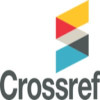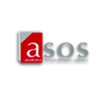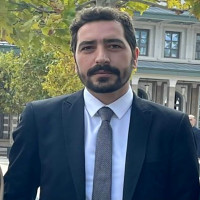Araştırma Makalesi
Sayı Editör Kurulu
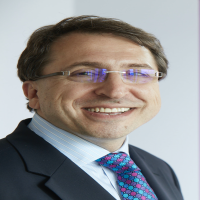

Erhan Akkas is an associate professor of International Economics at Sakarya University, where he also serves as the Vice Director of the Research Center for Islamic Economics and Finance. He holds a Ph.D. in Islamic Economics and Finance from Durham University, an M.A. in Global Political Economy from the University of Sussex, and a B.A. in Economics from Istanbul University. Akkas has been a visiting researcher at prominent institutions, including Qatar University’s Gulf Studies Center and Durham University’s Center for Islamic Economics and Finance. His research interests include political economy, economic development, Islamic economics and finance, and the economies of Islamic countries.
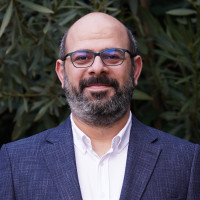
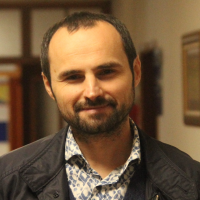
25 Mayıs 1983 yılında Yunanistan’ın Dimetoka şehrinde doğdu. 2006 yılında Marmara Üniversitesi İlahiyat Fakültesi’nden mezun oldu. Marmara Üniversitesi’nde devam ettiği lisansüstü eğitimini 2014 yılında tamamladı ve İslam hukuku alanında doktora derecesini aldı. Halen Sakarya Üniversitesi İlahiyat Fakültesi’nde Doçent olarak görev yapmaktadır. İlgi alanları içerisinde vakıf hukuku ve tarihi, klasik-modern fıkıh düşüncesi, son dönem Osmanlı hukuk düşüncesi ve islam iktisadı gibi konular vardır. Vakıfta Amaç: Hanefi Vakıf Hukuku Çerçevesinde Bir Araştırma, 40 Soruda Vakıf ve Türkiye’de İslam Hukuku Çalışmaları Literatürü (1928-2012) gibi kitapları yanında yayınlanmış makaleleri ve kitap tercümeleri vardır.

Mervan Selçuk graduated from the Business Department of Istanbul University in 2014. He received his MA and Ph.D. degrees from Islamic Economics and Finance Department at Sakarya University in 2016 and 2021, respectively. His doctoral dissertation is about the feasibility of a monetary union in Islamic countries. He was a visiting researcher at Kuwait University between November 2018 - May 2019. Since 2015, Assoc. Prof. Selçuk has been a research assistant at the Research Centre of Islamic Economics and Finance, Sakarya University. His research areas include Islamic economics, monetary unions, and cryptocurrencies.
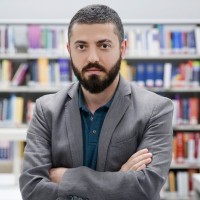






 Web
Web
İstanbul Medeniyet Üniversitesi

Alija Avdukic is currently a Professor in Islamic Economics and Finance at Al- Maktoum College of Higher Education and is the deputy director of Ph.D. & MSc Islamic Finance programs at Business School of the University of Dundee. Alija holds a Ph.D. in Islamic Economics and Finance (2016) from Durham University; and has MA in Islamic Banking, Finance and Management (2010) from Gloucestershire University. Alija completed his BA (2003) and PGDip (2007) from Al-Azhar University, Cairo, and Damascus University, Damascus.
Alija’s research interest in Islamic economics and its various articulations, Islamic moral and political economy, and Islamic finance and banking. Alija teaches and supervises research on Islamic political and moral economy, Islamic banking, finance, and the political economy of development in the Muslim world. Alija’s recent research includes the construction of Islamic moral economy and Islamic political economy, both of which is considered as an incomplete project since the early 1970s. Secondly, Alija develops the discourse around the ‘social and developmental failure’ of Islamic banking and finance in relation to the expressed ideals of Islamic moral economy by essentializing sharing and collaborative economy nature of Islamic finance. Alija is also involved in empirical research in various aspects and dynamism of Islamic banking and finance.
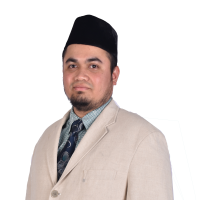
Amirul Haqeem bin Abd. Ghani IFP, CQIF, joined Durham University as a doctoral student in October 2014 at Doctoral Training Centre in Islamic Finance, he was awarded Islamic Financial Planner (IFP) and gained his doctorate in May 2019. Prior to his academic career as a Senior Lecturer in Universiti Utara Malaysia (UUM). Mr. Haqeem, graduate of Dundee University and worked at Kuwait Finance House Malaysia as a professional banker. He is the Old Putra (OP) of Royal Military College (RMC). He awarded Certified Qualification in Islamic Finance (CQIF-Wealth Management) by IBFIM in 2021. He is a trainer for Islamic Financial Planner by IBFIM-UUM collaboration since 2018. Mr. Haqeem teaches and trained IFP candidate especially in Cash Flow, Networth statement, Risk management, Islamic Investment for Hajj and Education and Estate planning. Mr. Haqeem exploring the social disclosure, environmental, green sustainability and social impact of Islamic banks for his research interest. He currently served as assistant principal for Student Residential Hall Malaysia Airlines, UUM for five terms.

Mohammad Rahim Shahzad is a driven researcher currently immersed in the pursuit of his PhD in Islamic Economics and Finance at Sakarya Üniversitesi, Turkey. His academic journey is characterized by a fervent dedication to unraveling the intricacies of Corporate Finance, Carbon Energy, and Islamic Markets.
As a prolific contributor to scholarly discourse, Mohammad's publications stand as a testament to his commitment to advancing knowledge in his field. His research endeavors have yielded impactful insights, as evidenced by his publications in esteemed journals such as the Global Finance Journal and the International Journal of Emerging Markets. These publications delve into topics ranging from tail risk transmission in technology-driven markets to the interconnectedness of global uncertainties in emerging markets.
Furthermore, Mohammad's forthcoming research papers promise to further enrich the academic landscape, addressing pressing issues such as climate change risk, CO2 emissions determinants, and the linkages between extreme downside risk and financial markets.
In addition to his scholarly contributions, Mohammad actively engages with the academic community through conference presentations, where he shares his expertise on topics like cash Waqf-based finance and barriers to innovation in SMEs.
Supported by research grants and recognized with awards such as the NICM annual business plan award and the Best Lecturer award from Kandahar University, Mohammad's dedication to research excellence is evident.
His multidisciplinary approach, coupled with proficiency in tools such as R, Python, and statistical software like EVIEWS and STATA, equips him to tackle complex research questions and generate innovative solutions.
For those interested in collaborative research endeavors or seeking insights into the forefront of finance and economics, Mohammad Rahim Shahzad is a valuable resource. Connect with him via email at shahzad.rh1@gmail.com or explore his profile on platforms like Google Scholar and ResearchGate to delve deeper into his scholarly contributions and research interests.



 Web
Web
Sakarya Üniversitesi
Amaç ve Kapsam
Uluslararası İslam Ekonomisi ve Finansı Araştırmaları Dergisi Politik, Ekonomik ve Sosyal Araştırmalar Merkezi (PESA) ve Sakarya Üniversitesi İslam Ekonomisi ve Finansı Uygulama ve Araştırma Merkezi (İSEFAM) iş birliği ile uluslararası, akademik, süreli ve çift kör hakem uygulamalı olarak yayımlanmaktadır.
Dergiye sunulan akademik çalışmaların alanında bir boşluğu doldurması ve özgün bir niteliğe sahip olması, ayrıca daha önce herhangi bir yerde yayımlanmamış veyahut yayımlanmak üzere kabul edilmemiş olması gerekir. Ayrıca intihale mahal vermemek adına tüm gönderiler iThenticate programı ile intihal taramasından geçirilmektedir.
Dergimiz; özgün nitelikteki disiplinler arası ve çok disiplinli bilimsel araştırmaları kabul etmektedir. Bu bağlamda akademisyenler, piyasa aktörleri ile İslam ekonomisi ve finansı araştırmalarıyla ilgilenenlerin çalışmalarını ve görüşlerini paylaşmak, tartışmak, değerlendirmek ve yaymak için bir platform oluşturmayı hedeflemektedir.
Dergimizin özel olarak yoğunlaştığı konular ise şunlardır: İslam Ekonomisi, Katılım Bankacılığı, İslami Finansal Piyasalar, İslami Yönetişim, Muamelat Fıkhı, Tekafül, İslami Muhasebe, İslami Ticaret, İslami Varlık Yönetimi, İslami Finansal Kuruluşlar, İslam Ekonomi Düşüncesi, İslam Ekonomi Tarihi, Zekat ve Vakıf.
Yazım Kuralları
Etik İlkeler ve Yayın Politikası
Ücret Politikası
IJISEF tarafından sağlanan hizmetler ücretsizdir. Yazar(lar)ın makalelerini IJISEF'e göndermek, işlemek ve yayınlamak için herhangi bir ödeme yapmasına gerek yoktur.
Dizinler
Dergi Kurulları
Baş Editör

Editörler

Erhan Akkas is an associate professor of International Economics at Sakarya University, where he also serves as the Vice Director of the Research Center for Islamic Economics and Finance. He holds a Ph.D. in Islamic Economics and Finance from Durham University, an M.A. in Global Political Economy from the University of Sussex, and a B.A. in Economics from Istanbul University. Akkas has been a visiting researcher at prominent institutions, including Qatar University’s Gulf Studies Center and Durham University’s Center for Islamic Economics and Finance. His research interests include political economy, economic development, Islamic economics and finance, and the economies of Islamic countries.

Yayın Kurulu
Banjaran Surya Indrastomo is currently a lecturer at Islamic economics program, Faculty of Economics and Business, University of Indonesia and a member of Board Advisor, Business Risk and Finance Working Group, School of Business and Management, Bandung Institute of Technology in Indonesia. He earned his Ph.D in Islamic economics and finance from Durham University in 2019, after obtaining M.A. in Islamic Finance from Durham University in 2013. Banjaran was an International Fellow at Fondazione per le Scienze Religiose (FSCIRE) in Bologna/Palermo Italy from 2020 to 2021 working on project Teologia, pensiero economico e prassi commerciali: feneratio, ribā e tasso d’interesse fra cristianesimo e islam' (Theology, economic thought and commercial practices: feneratio, ribā and interest rate in Christianity and Islam), co-funded by Banca d’Italia. He has published worked in peer-reviewed Journal, such as Heliyon and Journal of Business Ethics, and has numerous writings both in popular channel and in the form of policy briefs. Beside his academic work, Banjaran is currently involved in shaping Islamic economic and finance industry, acting as Chief Economist of PT. Bank Syariah Indonesia, Tbk, Indonesian largest Islamic/participatory bank and as member of Islamic Economic Board, Indonesian Chamber of Commerce and Industry.

Mervan Selçuk graduated from the Business Department of Istanbul University in 2014. He received his MA and Ph.D. degrees from Islamic Economics and Finance Department at Sakarya University in 2016 and 2021, respectively. His doctoral dissertation is about the feasibility of a monetary union in Islamic countries. He was a visiting researcher at Kuwait University between November 2018 - May 2019. Since 2015, Assoc. Prof. Selçuk has been a research assistant at the Research Centre of Islamic Economics and Finance, Sakarya University. His research areas include Islamic economics, monetary unions, and cryptocurrencies.

25 Mayıs 1983 yılında Yunanistan’ın Dimetoka şehrinde doğdu. 2006 yılında Marmara Üniversitesi İlahiyat Fakültesi’nden mezun oldu. Marmara Üniversitesi’nde devam ettiği lisansüstü eğitimini 2014 yılında tamamladı ve İslam hukuku alanında doktora derecesini aldı. Halen Sakarya Üniversitesi İlahiyat Fakültesi’nde Doçent olarak görev yapmaktadır. İlgi alanları içerisinde vakıf hukuku ve tarihi, klasik-modern fıkıh düşüncesi, son dönem Osmanlı hukuk düşüncesi ve islam iktisadı gibi konular vardır. Vakıfta Amaç: Hanefi Vakıf Hukuku Çerçevesinde Bir Araştırma, 40 Soruda Vakıf ve Türkiye’de İslam Hukuku Çalışmaları Literatürü (1928-2012) gibi kitapları yanında yayınlanmış makaleleri ve kitap tercümeleri vardır.

Alija Avdukic is currently a Professor in Islamic Economics and Finance at Al- Maktoum College of Higher Education and is the deputy director of Ph.D. & MSc Islamic Finance programs at Business School of the University of Dundee. Alija holds a Ph.D. in Islamic Economics and Finance (2016) from Durham University; and has MA in Islamic Banking, Finance and Management (2010) from Gloucestershire University. Alija completed his BA (2003) and PGDip (2007) from Al-Azhar University, Cairo, and Damascus University, Damascus.
Alija’s research interest in Islamic economics and its various articulations, Islamic moral and political economy, and Islamic finance and banking. Alija teaches and supervises research on Islamic political and moral economy, Islamic banking, finance, and the political economy of development in the Muslim world. Alija’s recent research includes the construction of Islamic moral economy and Islamic political economy, both of which is considered as an incomplete project since the early 1970s. Secondly, Alija develops the discourse around the ‘social and developmental failure’ of Islamic banking and finance in relation to the expressed ideals of Islamic moral economy by essentializing sharing and collaborative economy nature of Islamic finance. Alija is also involved in empirical research in various aspects and dynamism of Islamic banking and finance.







 Web
Web
İstanbul Medeniyet Üniversitesi
Alan Editörleri (Ekonometri)

AĞRI İBRAHİM ÇEÇEN ÜNİVERSİTESİ
Alan Editörü (İslam Ekonomisi)

Yeditepe Üniversitesi Bilgisayar Mühendisliği Bölümü’nden 2007 yılında mezun oldu. Aynı üniversitede İşletme (MBA) ve Ürdün Bilim ve Teknoloji Üniversitesinde Bilgisayar Bilimleri Yüksek Lisanslarını tamamladı. 2014 yılında Durham Üniversitesi’nde başladığı İslami Finans Doktora programını 2018 yılında tamamlayan Şencal, İslam Ekonomisi ve İslami Finans alanlarında çalışmalarını sürdürmektedir. Araştırmaları ve yayınları İslam Ekonomisinin dar kalıplar içinde yorumlanan bir disiplinden ziyade interdisipliner veya transdisipliner bir yaklaşımla ele alınması ve geliştirilmesi üzerine yoğunlaşmaktadır. Bu bağlamda üniversite, vakıf ve derneklerde alana dair programlar düzenledi ve dersler verdi. Bu alandaki çalışmalarını sunmak için katıldığı uluslararası konferansların yanı sıra uluslararası dergilerde de yayınları bulunmaktadır.
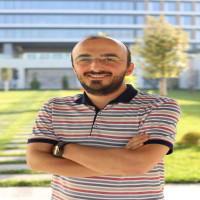
İsa Yılmaz holds a bachelor's degree in Economics and Management from Istanbul Bilgi University and participated in the University of London double degree program, receiving academic guidance from the London School of Economics and Political Science (LSE). He pursued his master's degree in Islamic Finance at the University of Durham (UK) and completed his Ph.D. in Islamic Finance from the same institution. Currently, he serves as an associate professor in the Economics Department at Istanbul Medeniyet University. He has published several academic papers on economic development, financialization and aspects of political economy in Islamic economics. In a broader context, he explores alternative economic and financial systems that strive to envision authentic models with positive developmental and welfare outcomes for emerging economies. To explore these areas, he engages with the literature on the moral economy, political economy, philosophy of economics, and alternative banking and financial models.
Alan Editörleri (İslami Finans ve Bankacılık)
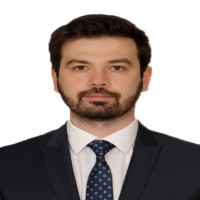
Murat Yaş Marmara Üniversitesi İslam Ekonomisi ve Finansı Enstitüsü'nde Dr. Öğretim Üyesi olarak görev yapmaktadır. Ayrıca Japonya'da Sophia Üniversitesi Asya, Afrika ve Ortadoğu Çalışmaları Enstitüsü'nde Ziyaretçi Araştırmacı olarak bulunmuştur. Yüksek Lisans ve Doktora eğitimini Malezya'da INCEIF Üniversitesi'nde İslami Finans alanında tamamlamış ve lisans derecesini Ekonomi alanında Boğaziçi Üniversitesi'nden almıştır. Ayrıca, İngiltere'de Reading Üniversitesi'nde ICMA Centre’da ziyaretçi yüksek lisans öğrencisi olarak bulunmuştur.
Araştırma alanları finansal piyasalar, İslami finans ve Asya çalışmalarıdır.
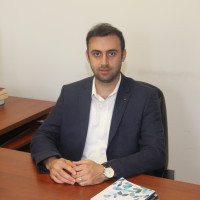
2011 yılında Ankara Üniversitesi Siyasal Bilgiler Fakültesi İşletme Bölümünden, Yüksek lisansını, 2016 yılında Sakarya Üniversitesi İslam Ekonomisi ve Finansı anabilim dalında “Borsa İstanbul Katılım Endeksinin Piyasa Faiz Oranları ile İlişkisi ve Performansının Analizi” başlıklı teziyle tamamladı. 2020 yılında ise Sakarya Üniversitesi İlahiyat Fakültesinde ikinci lisansını tamamladı. 2021 yılında aynı anabilim dalında “İslami Mikrofinans Programlarının Etkinliği: İksar Karz-ı Hasen Örneği” başlıklı tez çalışmasıyla doktorasını tamamladı. 2014-2021 yılları Sakarya Üniversitesi İslam Ekonomisi ve Finansı Uygulama ve Araştırma Merkezinde araştırma görevlisi olarak çalıştı. Halen Sakarya Üniversitesi Siyasal Bilgiler Fakültesi, İslam iktisadı ve finans bölümünde Doçent olarak görev yapmaktadır.
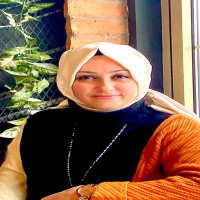

Doç. Dr. Hakan Aslan, Sakarya Üniversitesi İslam İktisadı ve Finans Bölümü'nde görev yapmaktadır.
Alan Editörleri (İslam Hukuku)
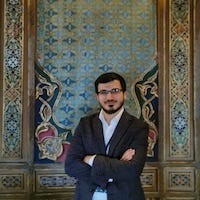
Batuhan Buğra Akartepe, 2015 yılında Marmara Üniversitesi İlahiyat fakültesinden mezun olmuştur. 5 yıllık lisans eğitimi boyunca İlimler ve Sanatlar Merkezi’nde (İSM) klasik İslami ilimler eğitimini tamamlamıştır. İlahiyat fakültesi sonrasında Anadolu Üniversitesi İktisat Fakültesi’nde ikinci lisans eğitimi almıştır. Yüksek lisans tezini İstanbul Üniversitesi İslam İktisadı ve Finansı bölümünde tamamlamıştır. Halen İstanbul Üniversitesi İslam İktisadı ve Finansı bölümünde doktora çalışmalarına devam etmektedir. 2016 yılından beri İstanbul Üniversitesi Sosyal Bilimler Enstitüsü-İslam İktisadı ve Finansı ABD bünyesinde araştırma görevlisi olarak çalışmaktadır. Çalışma konuları arasında; alacak satımı, kitlesel fonlama işlemleri, girişim sermayesi, İslami hisse senedi endeksleri ve güncel İslam iktisadı meseleleri yer almaktadır.
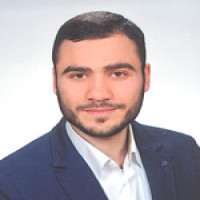
Siyasal Bilgiler Fakültesi, İslam İktisadı ve Finansı Bölümü
Alan Editörleri (Uluslararası İktisat)

AĞRI İBRAHİM ÇEÇEN ÜNİVERSİTESİ
Alan Editörleri (Finans ve Bankacılık)
Türk-Alman Üniversitesi İktisadi ve İdari Bilimler Fakültesi İşletme Bölümünde görev yapmaktadır. Çalışma alanları, kurumsal finans, davranışsal finans ve sermaye piyasalarıdır.
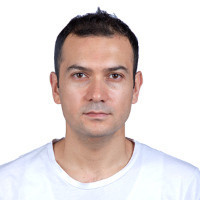
Alan Editörleri (Politik Ekonomi)

Yeditepe Üniversitesi Bilgisayar Mühendisliği Bölümü’nden 2007 yılında mezun oldu. Aynı üniversitede İşletme (MBA) ve Ürdün Bilim ve Teknoloji Üniversitesinde Bilgisayar Bilimleri Yüksek Lisanslarını tamamladı. 2014 yılında Durham Üniversitesi’nde başladığı İslami Finans Doktora programını 2018 yılında tamamlayan Şencal, İslam Ekonomisi ve İslami Finans alanlarında çalışmalarını sürdürmektedir. Araştırmaları ve yayınları İslam Ekonomisinin dar kalıplar içinde yorumlanan bir disiplinden ziyade interdisipliner veya transdisipliner bir yaklaşımla ele alınması ve geliştirilmesi üzerine yoğunlaşmaktadır. Bu bağlamda üniversite, vakıf ve derneklerde alana dair programlar düzenledi ve dersler verdi. Bu alandaki çalışmalarını sunmak için katıldığı uluslararası konferansların yanı sıra uluslararası dergilerde de yayınları bulunmaktadır.

İsa Yılmaz holds a bachelor's degree in Economics and Management from Istanbul Bilgi University and participated in the University of London double degree program, receiving academic guidance from the London School of Economics and Political Science (LSE). He pursued his master's degree in Islamic Finance at the University of Durham (UK) and completed his Ph.D. in Islamic Finance from the same institution. Currently, he serves as an associate professor in the Economics Department at Istanbul Medeniyet University. He has published several academic papers on economic development, financialization and aspects of political economy in Islamic economics. In a broader context, he explores alternative economic and financial systems that strive to envision authentic models with positive developmental and welfare outcomes for emerging economies. To explore these areas, he engages with the literature on the moral economy, political economy, philosophy of economics, and alternative banking and financial models.
Alan Editörleri (İktisat Tarihi)

Mizanpaj Editörü
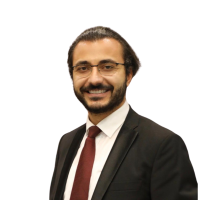
Sakarya Üniversitesi İslam Ekonomisi ve Finansı Uygulama ve Araştırma Merkezi
Dil Editörü



 Web
Web
Sakarya Üniversitesi
Teknik Editör

Sakarya Üniversitesi İslam Ekonomisi ve Finansı Uygulama ve Araştırma Merkezi

